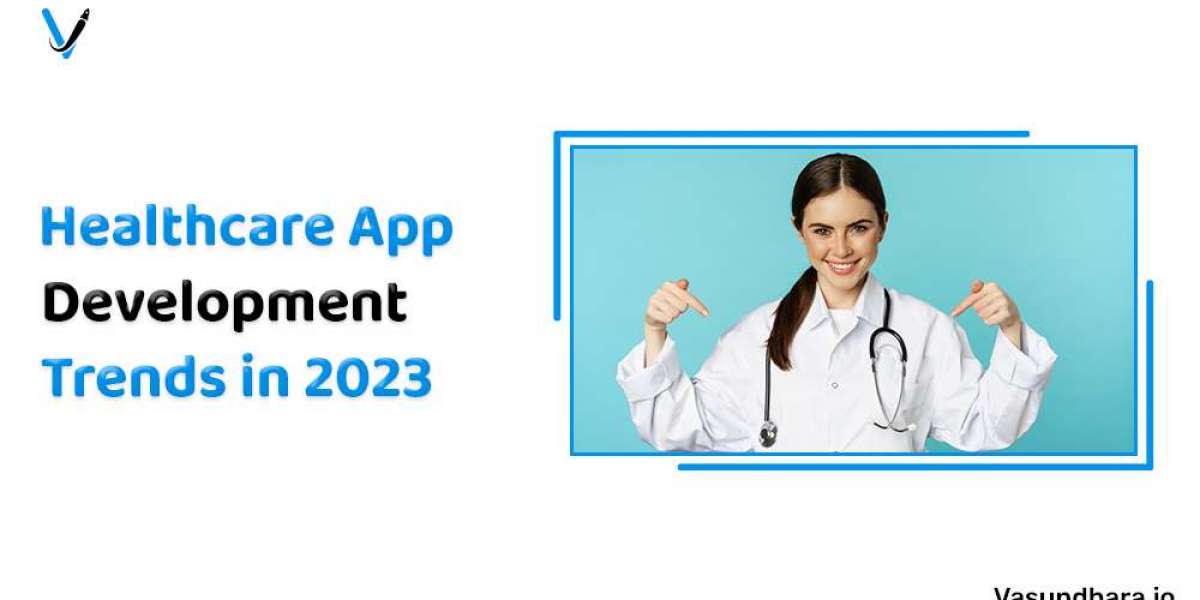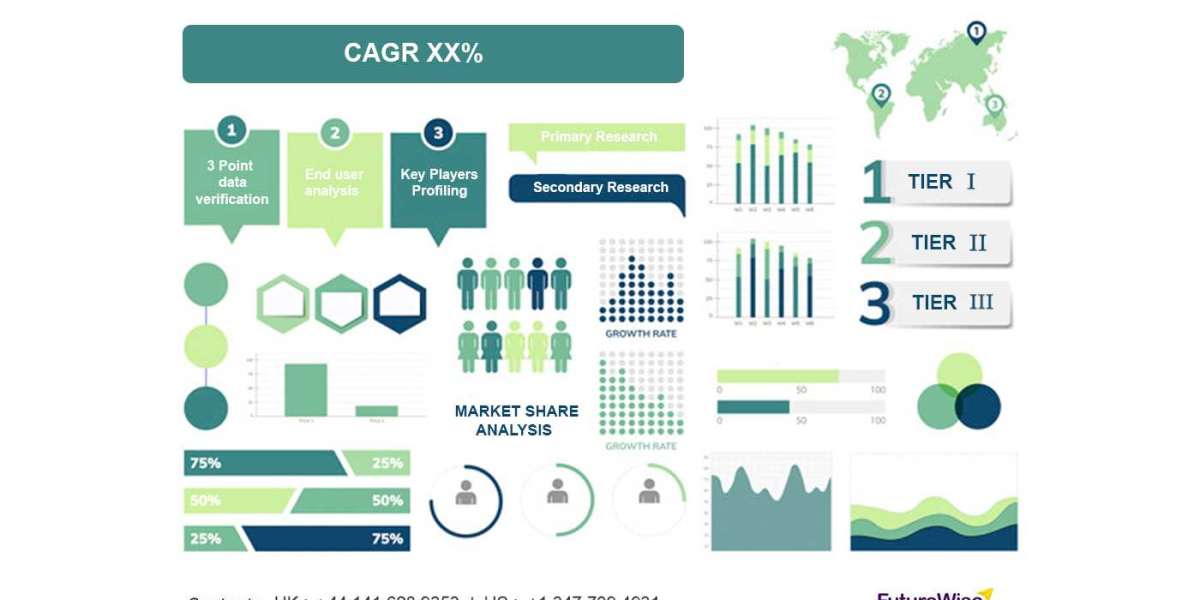The healthcare industry is in a constant state of evolution, and one of the driving forces behind this change is technology.
Healthcare app development is at the forefront of these innovations, with a range of trends reshaping the way patients and providers interact with the healthcare system.
In this blog, we'll explore the top 13 healthcare app development trends for 2023, and how they are revolutionizing the sector.
- Telehealth and Telemedicine
Telehealth and telemedicine are not new concepts, but they've gained significant momentum in recent years, and you might wonder, how to build a healthcare app that supports these services.
These apps are not just about video calls but have advanced features such as virtual waiting rooms and e-prescriptions.
To develop a successful telehealth app, partnering with an experienced app development company is crucial.
Example: Teladoc is a popular telehealth platform that connects patients with healthcare providers through video consultations.
In 2023, they introduced an AI-driven symptom checker that uses natural language processing (NLP) to provide initial assessments and recommend appropriate telemedicine services.
- AI and Machine Learning Integration
Artificial intelligence (AI) and machine learning are making healthcare apps smarter and more efficient.
These technologies have applications in diagnostics, treatment recommendations, and predictive analytics.
For instance, AI-powered chatbots can help patients with symptom analysis, while machine learning algorithms can assist in identifying patterns in patient data to predict health issues and prevent potential complications.
The cost of healthcare app development with AI features may be higher due to the complexity and specialized knowledge required. Nonetheless, the potential benefits in terms of improved patient care and efficiency are substantial.
IBM's Watson for Oncology uses AI to analyze patient data and provide personalized treatment options for cancer patients. Machine learning algorithms consider a patient's medical history and the latest research to offer evidence-based treatment recommendations.
Example: IBM's Watson for Oncology uses AI to analyze patient data and provide personalized treatment options for cancer patients.
Machine learning algorithms consider a patient's medical history and the latest research to offer evidence-based treatment recommendations.
- Internet of Things (IoT) in Healthcare
IoT is transforming healthcare by connecting various devices to collect and exchange data.
Wearable technology, such as smartwatches and fitness trackers, can monitor patients' health, sending data to healthcare apps and allowing for real-time tracking of conditions like heart rate and blood glucose levels.
In hospitals, IoT is streamlining operations by tracking inventory, enhancing patient safety, and automating routine tasks.
Example:- The Apple Watch serves as an excellent example of healthcare IoT.
In 2023, it can track not only heart rate but also blood pressure, oxygen levels, and even detect irregular heart rhythms, sending this data to a connected healthcare app for monitoring and analysis.
- Blockchain in Health Data Management
Blockchain is revolutionizing health data management. It offers an immutable and secure way to store and share medical records.
This technology ensures data integrity, making it easier to share patient records securely between healthcare providers while giving patients more control over their data.
In 2023, we can expect more healthcare apps to integrate blockchain for data management and security.
Example: Medicalchain is a blockchain-based platform that allows patients to securely store and share their medical records with healthcare providers. Patients control access, ensuring privacy and data integrity.
- Virtual Reality (VR) and Augmented Reality (AR) Applications
Virtual reality and augmented reality are expanding their presence in healthcare.
VR can provide immersive environments for patient therapy and training for medical professionals.
Surgeons can practice complex procedures in a virtual setting, and patients can use AR apps for interactive anatomy lessons and pain management.
Example: Osso VR offers a virtual reality platform for surgical training. Surgeons can practice complex procedures, like hip replacements, in a realistic virtual environment to enhance their skills and knowledge.
- Voice Technology and Chatbots in Healthcare
Voice assistants and chatbots are becoming essential tools in healthcare apps.
They provide a convenient way for patients to access information, schedule appointments, and receive medication reminders.
Natural language processing (NLP) enhances the capabilities of these voice-activated assistants, making them more intuitive and accurate.
Knowing how to build a healthcare app with efficient voice technology and chatbots is vital for user engagement.
Example: Amazon's Alexa can be integrated with healthcare apps to help users schedule medication reminders, provide information about common illnesses, and even guide them through basic first-aid procedures.
- Personalized Medicine Apps
Personalized medicine is a growing trend in healthcare, and apps are playing a significant role.
These apps use genetic data to create tailored treatment plans and identify potential risks.
They can suggest personalized diets, exercise regimens, and medication dosages. As genetic testing becomes more accessible, these apps are set to grow in popularity.
Example: Myriad Genetics' GeneSight is a genetic testing app. It analyzes a patient's DNA to determine how they might respond to different psychiatric medications, ensuring personalized treatment for mental health conditions.
- Data Security and Compliance
Data security remains a paramount concern in healthcare app development.
The Health Insurance Portability and Accountability Act (HIPAA) compliance is non-negotiable, and developers must implement robust security measures to protect patient data.
In 2023, expect increased focus on cybersecurity, with emerging trends such as blockchain-based security and biometric authentication.
Example: Protenus is an AI-driven healthcare compliance and security platform.
It uses machine learning to detect unauthorized access to patient data, helping hospitals and healthcare organizations maintain HIPAA compliance.
- Remote Patient Monitoring
Remote patient monitoring has a significant impact on healthcare.
Wearables and sensors allow patients to monitor chronic conditions and share data with healthcare providers.
This trend is reducing hospital readmissions, improving patient outcomes, and cutting healthcare costs.
Example: The Philips HealthSuite is a remote patient monitoring platform.
It connects patients to their healthcare providers and offers a range of devices for monitoring vital signs, enabling healthcare teams to track and intervene in real-time.
- 3D Printing in Healthcare
The use of 3D printing in healthcare is growing rapidly. It enables the production of customized medical devices and prosthetics, creating a more comfortable and precise fit for patients.
Additionally, 3D printing is revolutionizing the creation of medical implants, ensuring they are tailored to individual patients.
Example: Stratasys produces 3D-printed prosthetics, custom-fitted to individual patients. These prosthetics are not only highly functional but also more comfortable compared to traditional options.
- Health and Wellness Apps
Health and wellness apps are gaining popularity as more people prioritize their well-being.
These apps offer features such as fitness tracking, nutrition planning, and mental health support.
In 2023, we can expect continued growth in the development of apps aimed at improving overall health and quality of life.
Example: MyFitnessPal is a popular health and wellness app that helps users track their nutrition, exercise, and overall health. It provides personalized recommendations based on user data.
- Challenges and Ethical Considerations
As healthcare app development advances, it brings with it a set of challenges and ethical considerations.
These include issues like data privacy, consent, and ensuring that AI and machine learning are used responsibly.
Developers must remain vigilant in addressing these concerns while pushing the boundaries of innovation.
Example: The use of AI in healthcare app development presents ethical challenges. For instance, the potential for bias in AI algorithms could lead to disparities in care.
Developers must work to ensure that their AI systems are fair and unbiased, like IBM's Fairness 360 toolkit, which helps identify and mitigate bias in machine learning models.
Conclusion
In 2023, healthcare app development is set to continue its rapid evolution, with trends like telehealth, AI integration, and IoT shaping the future of the industry.
Patients and providers alike will benefit from the convenience, efficiency, and improved quality of care that these trends bring.
While there are challenges and ethical considerations to navigate, the potential for positive impact in healthcare is immense.
Developers, healthcare professionals, and patients should stay updated with these trends, as they are set to revolutionize the way we approach healthcare in the years to come.



